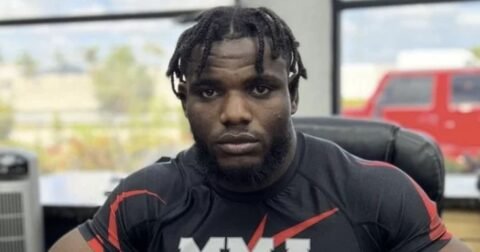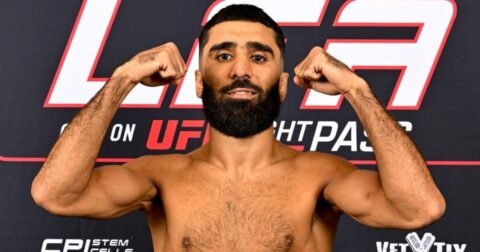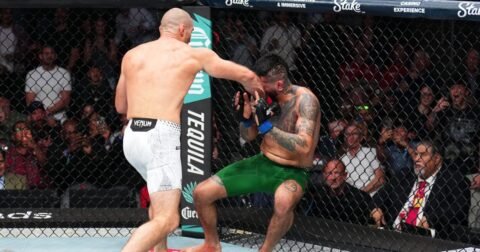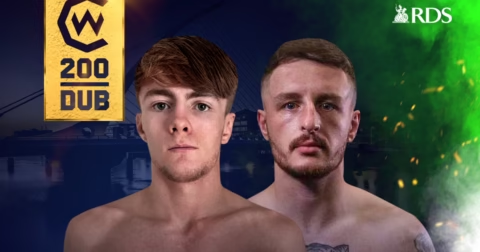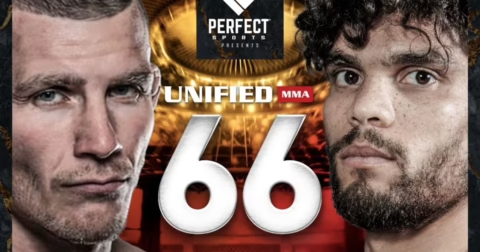I had the absolute honour of sitting down with Gary Savage. He is a BJJ black belt and head coach of Sukata Blackpool/Savage MMA. Gary has a wealth of experience and has seen the growth and evolution of BJJ. He tells some incredible stories so if you enjoy this don’t forget to purchase his book, Karate Doesn’t Work In A Phone Box, which I will put a link to at the end. Enjoy.
Kieran – Good evening Gary, thank you for taking the time.
Gary – Hi, my pleasure Kieran.
Kieran – So as always, how did your BJJ journey begin, and what got you into the gentle art?
Gary – I started training in Martial Arts(Karate) at 12-years-old
formally, but my dad was an unarmed combat instructor in the army and taught me some grappling and boxing from a very young age. I was a black belt in Japanese jiu-jitsu when someone handed me a dodgy VHS copy of the UFC. I was rooting for Royce from the start as I believed we did the same art. It was only when I witnessed his absolute domination that a light bulb came on in my head and I knew that I had to learn the system. My dad had always told me that an effective fighting art had to be pressure tested and here it was, the empirical proof I had been searching for. This would be around 1994, and there was more chance of finding Lord Lucan than a BJJ school. The Gracie family brought out a series of instructionals and I worked off that for a couple of years. I then started training under Karl Tanswell who was a blue belt and I got my blue from Matt Thornton from SBG. Around 2006, I started training under Mario Sukata and have been with him ever since.
Kieran – That’s some introduction to martial arts mate. So how long was that period before you found a BJJ club and what was that feeling like when you finally discovered one?
Gary – The first Brazilian Jiu-Jitsu I saw was when Carley Gracie come over to the UK in 1998 to give a seminar. I remember driving home in an absolute trance thinking “why have I never thought to apply a technique like that”, it was mindblowing. I lived in Cumbria at this time so I kept an eye on the martial art magazines to see who was teaching. I decided the only way I was going to learn was to move and that’s what I did. I trained under a couple of blue belts, who at this time whereas rare as hen’s teeth, but it was only when I read about Karl Tanswell’s Defence Unlimited in Manchester that I found a place that taught proper BJJ. There was a coach called Colin Robinson who like Karl, is sadly no longer with us. He was a purple belt and that was amazing. Defence Unlimited later changed to SBG, but it was a great gym and there were so many talented people there. I met Gavin Boardman on my first visit. I was meant to meet Karl but was late and by the time I arrived he had gone. He told Gav to roll with me and would decide whether I could join following the outcome. Long story short, we rolled for quite a while, Gav was amazing(still is) and he was complimentary about my skills. That’s how I started under Karl and Colin. I stayed a couple of years and loved my time there. I would do a 2-hour class, drive an hour home and train with some other guys for a couple of hours. Crazy days. Although I loved the training and learned a lot, I wanted to learn from a Brazilian jiu-jitsu black belt. When Mario came over around 2006ish, I left SBG and went to the Wolfslair. I was a blue belt at this time and remember walking into the gym and saying to Mario “I am a blue belt, but I will take the belt off and start again.” He laughed and said roll and let me see how you do. There was another blue belt under Mario called Scott Pickering AKA Kojak. He basically mauled me. His skill was off the wall. I managed to survive a couple of rolls but this, I feel was my real introduction to BJJ. Mario said you are a good blue belt so stay as you are. I drove the hour-plus journey home feeling like I had won the lottery.
Kieran – So you were very committed to finding a club and improving your skills. Can you talk about when you finally rolled with Mario Sukata, who is incredibly experienced, and how much of an experience that was for you?
Gary – So here I am training with an absolute legend in Sukata, but what struck me was the fact that those early sessions were lucky if they had five people on the mats. Mario was/is a phenomenal coach, but when you rolled with him it brought it home how far you were from his level. I used to do a Saturday morning 1-2-1 with him in addition to the weeknight sessions and it was during these that I first felt what real “pressure” feels like. We used to start with pass the guard, hold the guard, and some days I thought I was doing OK and others I was thrown around with ease. It was the same when we rolled. I remember almost passing his guard once and in my head, the celebration had started a little too early as the next thing I knew I am sailing through the air before landing in a heap into an armbar. I realised as I moved through the grades – something that I do with my students to this day – that Mario only ever rolled just above my level, this made me improve so much. He never really smashed me as that’s not his way, although, he was so relaxed and skilled. The time I saw Mario rolling full tilt if you like was when his brother, the incredible Fredy Sukata, came over for a visit. Fredy is Mario’s younger brother, but make no mistake, his jiu-jitsu is as good and he is a beast. We were all rolling, but when Mario and Fredy started rolling, everyone stopped to watch. I have never seen anything like it. It was pure art, beautiful to behold. It is when I realised what people meant when they say “jiu-jitsu is like human chess.” There was no winner, but they were both going for it. These days when I roll with Mario he still surprises me with something. An example being, a year or so ago during a ten-minute roll, he subbed me with the same technique three times. I knew it was coming, I applied what I thought was the correct defence, and yet I couldn’t stop it. The move was the straight armbar from guard. It changed the way I do the move as I went home and during a sleepless night, I tried to figure out the small details. In short, Sukata has the best jiu-jitsu I have ever felt, he is a legend for a reason and I am blessed to call him my coach, mentor, and friend.
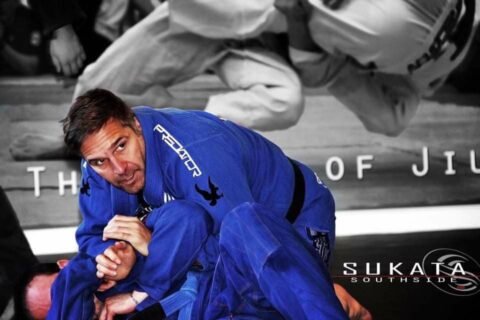
Kieran – Wow these are some incredible stories mate. I love how being submitted by Mario kept you awake because you wanted to break down every little part of the move. That’s some dedication. I could only wish to have been there to witness the Sukata brothers roll. You said when they rolled everyone stopped to watch. How much did you learn by watching them roll and do you find you can learn just as much visually as you can physically?
Gary – As I say it was mind-blowing. I think what I took from watching these two colossi rolling was how relaxed they were until the right moment came to explode. I believe that we all learn differently, some visually, some through feeling, and some through listening. There is no substitute for aliveness in BJJ. That was something that I learned at SBG and use to this day. You have to pressure test a technique and the best way is to introduce it as a compliant movement before adding some resistance and finally trying it in rolling against a non-compliant opponent. There is much debate about the time you should invest in learning/drilling against mat time rolling. Personally, I believe you have to balance the two things to be efficient in jiu-jitsu. Also, you need to stay in that white belt mind. I can learn from anyone, a new person walking through the gym can sometimes present you with a movement you are not expecting and this leads you to look at your game. I also believe, very untrendy, that BJJ is predominantly a self-defence art and we need to keep this in mind when learning techniques. For example, I see a lot of people applying, say an Americana, but they are unaware of their head position. In the street, if you are breaking someone’s arm, you better believe they will try to take your eye out as a souvenir. I worked doors for a few years and my jiu-jitsu was always being adapted to be more street savvy. I nearly lost a thumb once when I mounted some drugged up, idiot. I put my hand on his throat to stop him spitting and he managed to get my thumb in his mouth. In that situation, I had no choice but to put my other thumb in his eye. He let go thankfully and I learned a valuable lesson. This was pre BJJ days, but once you have nearly lost a thumb you don’t forget. Sorry, I’m going off the subject, but the point is, people, learn differently and their motivation for learning can differ.
Kieran – That’s amazing. And not to worry, stories like that people like to hear. I’m happy that you have both thumbs intact though. You mentioned that situation happened pre-BJJ days. Can you talk a bit about the evolution of BJJ, how far it has come, and do you think it can go further?
Gary – BJJ has evolved much like anything in history. It’s hard to compare in many ways as the “old school” of which my coach is the headmaster was tested on the most brutal of stages. That being bare-knuckle, anything goes, drag-out fights. These days we marvel at the skill level of Gordon Ryan and rightly so, but there would be no Gordon Ryan without the founding fathers, Carlos and Helio. I am blessed that my coach is old school, although make no mistake, he will berimbolo you at will if the mood takes him. There will always be the “things were better in my day” opinion and in contrast, the “modern jiu-jitsu is so much better.” I go back to my earlier statement, jiu-jitsu is a self-defence system first and foremost, but I equally love the sport. But, and this is important, the two are different in the most fundamental respect. What works in a competition is great, but don’t try it in the kebab shop on a Saturday night against a drugged up Neanderthal. Having said that in a one-to-one my money would be on a competitive sport jiu-jitsu guy that has never trained self-defence against a drunk or random attacker. I’m all for evolution though. I love to see my younger students trying new techniques. I try to stay on top of it all myself, but that’s because I’m a jiu-jitsu addict. I sleep, breathe, and love it. Although it can be a cruel mistress I will continue to try and evolve as much as my ageing body(57) will allow. I remember talking to Mario when I had just turned 40. I was worried that I wouldn’t be able to keep up with the younger lads and ladies in a scramble etc. He said “don’t worry, your game will change, and instead of you trying to keep up with them, you will learn to frustrate them until you see an opening.’ He was right, I still roll with my young students and like to think I still have a few tricks up my sleeve. As they say, there is life in the old dog yet. Jiu-Jitsu is an art for all. I am seeing more and more people discovering its many benefits. There are some incredibly talented people and as long as we keep moving forward, jiu-jitsu is going to outlive us all.
Kieran – That is an excellent way to describe the evolution of BJJ. You can see how much it means to you just with the words you are saying. So you have competed a lot, you become European champion and you have even dabbled in MMA. How do you approach the two in terms of preparation? And what has been your most memorable moment in a competition?
Gary – To be honest, that is a big regret. I missed my physical peak both for jiu-jitsu competitions and MMA. There wasn’t a high-level competition back in the day, so any success I had had to be measured. I fought my last MMA fight at 43 and the fight before that I lost my left ear in the bout. I was fortunate, the bout was in Birmingham, and two miles up the road was Selly Oak hospital. It has one of the best plastic surgery reputations in the UK, and they were able to sew the ear back on. Either that or I would have had to grow my hair long on one side and become a Phil Oakley tribute. Anyway, I loved to fight. My last bout didn’t go to plan either and I decided that it is a young man’s game. In BJJ, I won Silver in the first-ever UK BJJ competition that Chen Moraes put on in 1998. My first competition was in ’97 in London again, and I got matched against the great Rick Young in my first bout. Long story short, he nearly took my arm back to Edinburgh with him. He won gold that day, but he really surprised me at the end of the competition by coming up and shaking my hand. He said I was good and offered me free training if I ever went to Edinburgh. Sadly, I have never been, but it’s on my bucket list. My best performance came in 2009 at the European championship held in Switzerland. I had to fight in a lower age bracket as there were no old boys in my weight. I was a purple belt and took the gold submitting all in my bracket. Mario promoted me to the brown belt after that. I used to really enjoy getting ready for competition and in my younger days I would start the day with a five-mile run, train twice a day and try, although not always successfully, to eat right and stay off the beer. Probably my most memorable moment in the competition didn’t end with me getting a medal, it was Brazil 2009, when Mario, Kojak, and myself went to Rio to compete in the international Masters and Seniors. Kojak took gold after a great performance and Mario also took Gold. It was the first time I had seen Mario compete and it certainly didn’t disappoint. In fact, when we walked down the street in Rio people would stop and ask him for photos etc. I never realised how famous he was over there. The trip to Rio was made extra special when purely by chance, we bumped into Rickson Gracie eating lunch at an outdoor cafe. We ended up talking to him for ages and Kojak paid for his lunch. The training in Brazil was out of this world. On our first session at Ricardo De La Rivas gym, we arrived early. Kojak and I couldn’t believe it as one after another black belt walked on to the mat. I think there were probably 20 black belts and us two purple belts. I had only really seen Mario and Fredy up to that point. It was amazing. And to say the rolling was great really wouldn’t do it justice. These days I’m happier coaching my students, although there are times when I’m lamenting the past when this voice in my head says “go on, you’ve got another fight left in you.” That’s when it pays to have a good partner like I have to say “no.” I think she’s just worried I’ll lose the other ear.
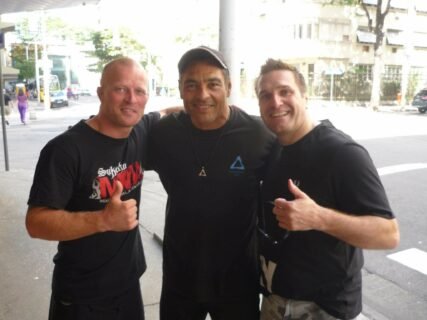
Kieran – That is crazy, I’m happy that luck was on your side that day or you could be lacking an ear and a thumb today. Meeting Rickson Gracie must have been a big moment for you. It’s a shame you didn’t get a chance to roll with him. I bet that would have been an experience also. So you’re the head coach at Sukata Blackpool/Savage MMA, how did that come about and was being a coach something you wanted to do?
Gary – I’ve been teaching for a long time, starting in Japanese jiu-jitsu and getting into Wrestling before there was any legit BJJ. I started teaching BJJ around blue belt which today in times of plenty seems mad. Back in the day, it was just the norm. My academy in Blackpool is the result of teaching out of some really rough places. Before this, I was a partner at a really nice gym called ITC, but I wanted to get back to my roots in terms of training and decided to set up Savage MMA/Sukata Blackpool. I have a great business partner called Hazel who luckily is as mad as a box of frogs like me and she is a ninja on the mats. We pooled our resources and have had an interesting first year, to say the least. We only teach jiu-jitsu and MMA. No kickboxing or anything else. We run 6 days a week schedule and have some great students. I have graduated six black belts now, so we are never short of hard rolls or great coaching. I love coaching, it’s my full-time job and is the most rewarding thing I’ve ever done. The kids at the gym are absolute savages and we are going to really hit the competitions when Covid taps out. I truly appreciate everyone that shares the Mat with me and there is not one person I don’t connect with in some way. I also travel a bit and have an affiliate BJJ academy in Workington, Cumbria, run by a great coach called Mark Hodgson and another in Hertfordshire run by David Chastell, a great Judo and BJJ guy. I’m so lucky to have these people that want me to teach them and they all are strong academies. I’ve known Mark for years, he is one of the best Karate teachers in the country, but like me is open to learning other arts. For my own gym, we are proud to be a part of the Sukata family. There are top gyms throughout the North West of England and some equally great black belts. Kojak and I were Mario’s first black belts getting it on the same day in 2011. The Sukata name is now revered and we are always taking top place at competitions across the country. This is a testament to Mario. He has dedicated his life to teaching us, and I can’t thank him enough for his guidance and teaching.
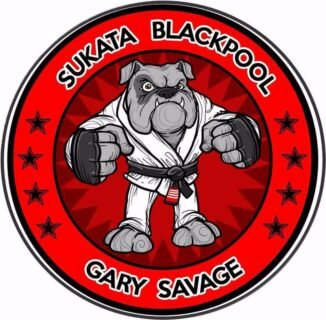
Kieran – I love the respect and gratefulness you show to Sukata, the coaches at the other academies and your business partner. I guess your academy was well named with yourself coaching there and the savages that are coming through it. What advice would you give to gyms and clubs who are struggling in these difficult times and trying to stay afloat?
Gary – It is really sad to see gyms having to close their doors because of this situation. We have struggled and without the support of my partner Janet, and my business partner Hazel, and my amazing students I might not have made it. I believe what doesn’t kill us will make us stronger. Jiu-Jitsu is stronger than any virus and will come out the other side. My advice for what it’s worth to other coaches is to try to stay optimistic and believe that this will all be a bad memory one day. We are lucky to be doing what we do. I would teach jiu-jitsu in my back garden if I had to. We have a duty to get past this and ensure the future for all of the young people just discovering this gift. I know that some gyms have been forced to close and that is tragic. Especially when we look at the many benefits that training in jiu-jitsu gives. Not just physical, but mental health benefits from jiu-jitsu. If jiu-jitsu were to be outlawed it would just go underground; it would continue. There would just be some badass masters teaching in underground bunkers, bestowing those who want to accept it as the great thing it is. But seriously, we will come out of this stronger. There has never been a greater need to learn jiu-jitsu. The world is going mad. We need people that can choke out the crazies and defend the people that can’t defend themselves.
Kieran – jiu-jitsu can play a major part in helping a lot of people through this. That is one of the reasons why people weren’t too happy when the gyms closed. You were inducted into the Martial Arts hall of fame, can you talk about that achievement and how much that means to you?
Gary – Yes it was a lovely thing and it’s always nice to be recognised for your endeavours, but at the end of the day, I’d rather be remembered as a good person and coach. Besides, I upset Bill ‘Superfoot’ Wallace that night. I was called up for my award, and Superfoot was presenting it and as he handed me the certificate he said your tie pin is too high. Now I should have just smiled, accepted the award, and walked off, but that’s not how it went down. He wasn’t prepared or happy with my retort “You’re American, what do you know about style?” I’m an old Mod, we know how to wear a tie clip. Anyway as I say it’s nice, but no big deal really.
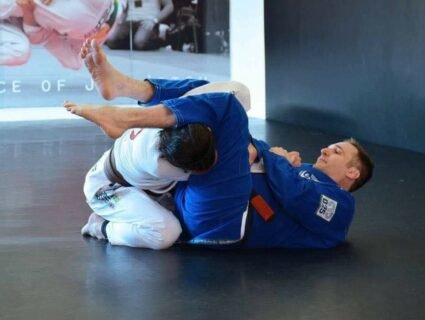
Kieran – Just thought I’d ask about that. You had a book out this year, ‘Karate doesn’t work in a phone box’ can you tell everyone how that title come about and what the book is about?
Gary – Yes it has raised a few eyebrows within the Karate world. I get loads of messages saying “yes it does,” and how they would fight in a phone box etc, but the title is nothing to do with fighting in a phone box. It came from something my dad told me one day when I had been in a fight at school. The other kid had pulled my hair, scratched, and hit me with everything but the kitchen sink. I, on the other hand, thought it unfair to fight like that. I come from a Roman background and it must have been in me to fight with fists and feet at age 10. Anything else was cheating. My dad said, listen you need to use whatever you can to defend yourself, adapt to your situation. What do you mean dad I asked. Well, all that Karate is ok, but what about if you are attacked in a closed space. I still didn’t get it. Like what, I asked. What about if you are attacked in a phone box, karate doesn’t work in a phone box. When explained like that, I understood. It’s what Bruce Lee said, “adapt or be destroyed.” Many years later, I was struggling with my mental health and had been prescribed medication that was basically ruining my life, health, and generally wasn’t helping me. I decided to fight the label they gave me, “bipolar” and it was this fight that I related to my dad’s advice. The book is full of stories of my martial arts and the scrapes I got into and ultimately, my fight to beat the label and get off the pills.
Kieran – That is amazing how you have overcome that label and showed that nothing everything requires medication. I will have to get a copy of your book. If the stories are like what they have been like in this interview then we’re in for a treat. Last question mate, what is the best advice that Sukata has instilled into you that you still use to this day, and what advice would you give to someone who is starting their BJJ journey?
Gary – Thanks, Kieran. The best advice I ever heard Mario give and not just to me, but to anyone that was looking at making fighting their career was this, he was asked “what do you need to be a fighter?” his response was immediate and without hesitation, he said, “a fighter only needs two things, heart and a gum shield”. I use that with my young fighters all the time. It epitomises the Sukata way.
Kieran – Gary, it has been an absolute honour. I’ve enjoyed every moment of it and once again you have some incredible stories.
Gary – Thanks, mate.
Don’t forget, for many more incredible stories like these, to purchase Gary’s book, ‘Karate Doesn’t Work In A Phone Box’ here.
Also, Gary’s new book, ‘All Aboard the Gracie Train – A Jiu-Jitsu Trip’ will be available next year, so keep those eyes peeled for that one.



